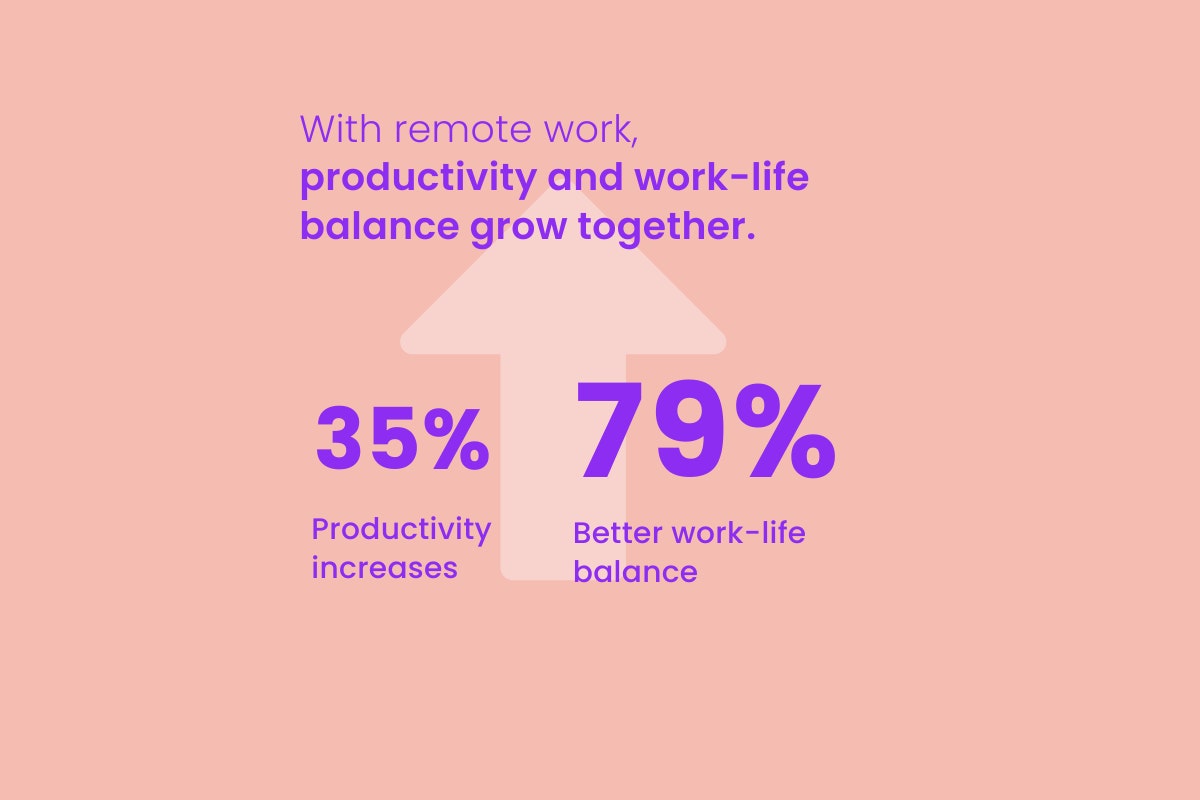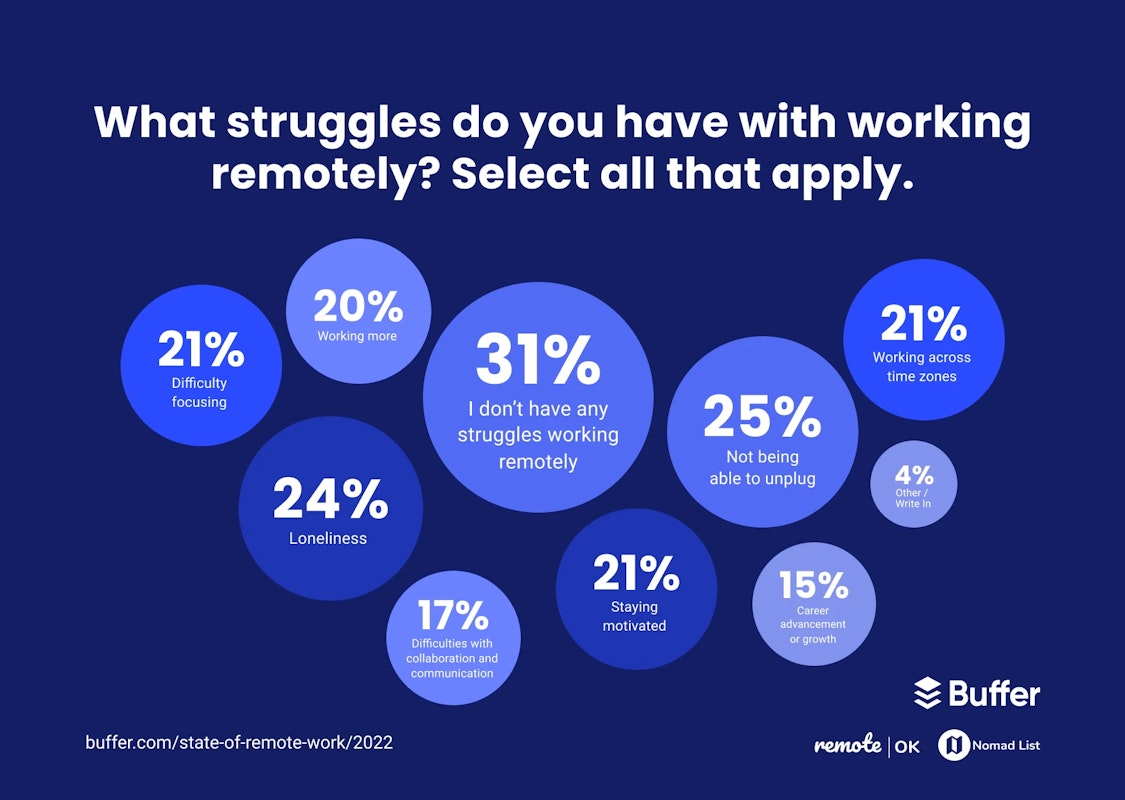In this day and age, the concept of “clocking in” is soooo 2019. Our remote workforce is here to stay, with a report by McKinsey & Company saying that nearly 6 in 10 workers are now working at home at least 1 day a week. That could have something to do with the fact that companies are finding that remote workers are more productive, more satisfied with their jobs, and drive stronger results.
But if you’re managing a remote team, especially after the scramble to get technology and protocols in place quickly after the onset of the virus, you might wonder how to be sure they’re putting in their expected 8 hours a day.
The answer is pretty simple: you don’t. The “butts in seats” mentality has plagued corporate America for decades, with employees consistently discouraged from being away from their desks unnecessarily. Now that workers are required to be away from their desks (and their offices, colleagues, and managers), it’s difficult to know how to keep tabs on them.
That’s why, at First Page, we just don’t. We never have because even before the pandemic, we put our energy into crafting a work-from-anywhere model that was efficient, effective, and sustainable. And we promise — it isn’t total anarchy. That’s because we know why obsessing over bodies in chairs doesn’t work for remote work, and we’re sharing those reasons with you.
Why "Butts in Seats" Doesn't Fly for Remote Work
Reason #1: They Don’t Have Uninterrupted Work Time
Technology is a lifesaver in this era of social distancing. Communication tools like Slack, Zoom, and Google Hangouts keep us connected, even when we’re far apart. That’s all well and good, but when you expect employees to be constantly available, they don’t have time to focus on their work.
Now that entire companies are remote, teams are working on a myriad of different schedules, with employees checking in, sending updates, or asking questions whenever they have a minute. For some, that means constant notifications, pings, and distractions that take them away from the tasks at hand.
Allowing employees to be “offline” for chunks of time throughout the day ensures they have the flexibility to buckle down when it works for them. You may want to request certain windows of availability for meetings or check-ins, but if they’re hitting goals and deadlines, you don’t need to monitor whether or not their chat light is always on. Besides, remote workers are known to be more productive.

Reason #2: They Feel They’re “Always On”
Those of us who’ve been at this remote work game for a while now have already discovered that work hours and off hours often bleed together. We respond to messages after the kids go to bed or send emails over coffee on Saturday morning. While it can be motivating to allow employees the flexibility to complete tasks when it’s convenient for them, setting the expectation that they should always be available puts undue pressure on them and blurs the already fine line between their professional and personal lives.
It can help to have everyone on the team indicate their regular working hours and let them know it’s okay to turn off notifications when they’re off the clock.
Reason #3: They Don’t Feel Trusted to Manage Their Time
In a traditional office environment, it’s common for employees to take breaks throughout the day. They may head out for lunch, stop by to chat with a colleague, or take an afternoon coffee break. In the new normal of remote work, they may only venture from the dining room table to the fridge. And if they feel that Big Brother is watching, they may even avoid that.
Creating an environment of paranoia and suspicion is damaging, not only to the employees but to the company’s bottom line. If they feel they can’t take a break without being noticed or called out, discouragement, resentment, or apathy will quickly set in.
Your employees are grownups, and unless they’ve done something to call your trust into question, there’s no reason to monitor their every move. Giving them autonomy to manage their own schedule is freeing and empowering, and if you have the right employees, it leads to better work and better outcomes.
Reason #4: They Struggle with Work/Life Balance
The pandemic changed the way we live and work. Employees with dependents (including children, pets, or aging parents) are obligated to be there for them, and often, their needs arise during traditional business hours. Punishing team members for taking care of the business of life because you feel they should be taking care of your business creates strained relationships and can also have an impact on mental health.

Instead, understanding that employees may need to help a child with e-learning or take a loved one to a doctor’s appointment and encouraging them to do so without guilt or fear of recrimination helps you build a foundation of mutual trust and respect. It also increases job satisfaction and leads to greater employee retention.
Reason #5: You’re More Concerned with Time Than Remote Work Results
Dissatisfied and overworked employees are rarely productive. Autonomous, supported employees drive results, even if they meet their goals on their timeline instead of yours. When managed effectively, remote workers are nearly twice as happy in their roles and more ambitious and driven than their in-office peers. However, if you’re scrutinizing the hours they’re logged in rather than the goals they’re meeting, you’re missing the mark.
By sending the message, even subconsciously, that time matters more than outcomes, you’re going to create employees that are disconnected, uninspired, and far more likely to “phone it in” so they can meet an arbitrary and outdated notion of 8-5 workdays.
How First Page Said “Girl, Byeee” to Butts in Seats
Our secret is pretty simple: We treat our all-remote staff like human beings. We treat them like capable, responsible adults. And mostly, we treat them like experts because that’s what they are. We understand they might need to make a run to the grocery store in the middle of the day or sign off at 3:00 p.m. for their kid’s soccer game. And we expect that even when they do, their deadlines will be met and their work will get done.
Our refusal to micromanage is part of what attracts top talent to our team, and it’s definitely one of the things that keeps them there. Our employees are located around the world, across time zones and cultures, but when they’re given the trust and autonomy to work in the way that best suits them, they drive results. And honestly, we don’t care where their butts are, as long as they’re doing their part to help us deliver on the promises we make to our clients.
Right now, those butts may be in ergonomic office chairs, on a neon towel at the beach, or on the memory foam mattress they thought they overpaid for (but didn’t). As long as our clients are happy and the data proves our methodology, we don’t mind.







